Note: As a Pakistani living in America, I’ve come to see how integrity—doing the right thing even when no one’s watching—can shape a society. From grocery store jobs during COVID to receiving a 13-cent refund from a gas company, this post explores how honesty, respect, and small daily choices have helped make America a nation people trust—and what Pakistan can learn from it.
If you’ve been following my blog on OverseaEyes.com, whenever I experience something good here in America, one thought always comes to my mind: I wish we had this in Pakistan too, not just in books, but in real life. Today, I wanted to talk about something that has been weighing heavily on my mind recently: integrity.
It’s a large word, but it’s about something pretty basic—doing the right thing, even when nobody’s watching. Wherever you are, whether at a job or in daily life activities.
I really understood the meaning of integrity during the COVID-19 pandemic. Jobs were disappearing everywhere, but retail stores were still hiring. I got a job at a national grocery store chain.
What surprised me wasn’t the work — it was the company’s values. Right at the top of their list was integrity. And they didn’t just talk about it—they lived it. Even in tough times, they donated over a million dollars every year to charity. Employees could also donate, but only if they truly believed in the cause. Their simple rule stuck with me:
“If you wouldn’t use it yourself, don’t give it to others—just throw it away.”
It wasn’t about showing off or pretending to be good. It was about being honest when no one is watching.
And honestly, it’s these small habits—integrity, discipline, respect for others—that make America one of the most admired countries in the world.
It’s not about money or power. It’s about the way people treat each other, how the system protects everyone’s rights, and how honesty is just a part of daily life.
Now imagine if we took this same attitude back to Pakistan.
What if we stood in lines, respected red lights, stayed honest even when no one was checking?
It’s not a big revolution. It’s small, daily choices that build trust, fairness, and progress.
If Pakistan wants to rise in this century, this is where it has to start.
Honesty isn’t optional. It’s the foundation.
What Does Integrity Look Like in Daily Life?
Let’s start with America. One thing I’ve noticed here is that integrity is baked into so many parts of life, even the small stuff. Take something as simple as a parking lot. People don’t just park wherever they feel like it—they stick to the lines, even if it means circling around for a spot. Or think about traffic rules. Stop signs aren’t suggestions here; people actually stop, even if the road is empty. I wrote about this in one of my posts, “Why People in the USA Follow Rules: A Pakistani Reflection”, where I talked about how these little acts of discipline add up to a system that works.
Then there’s honesty in business. A while back, I got a check for 13 cents from a gas company. Yup, 13 cents! They sent it because they’d overcharged me by that tiny amount. Can you imagine? They didn’t have to bother, but they did. It’s not just about the money—it’s about owning up to a mistake, no matter how small. Compare that to Pakistan, where sometimes you have to double-check your bill at a shop because the shopkeeper might “accidentally” add an extra item or two. It’s not always intentional, but it happens enough that you notice.
Another example? Prices here in America are stable and fair, especially for everyday things. I’ve been buying bread, milk, and eggs for the last 7 or 8 years, and the price is still around a dollar for each. If gas prices go up because of market conditions, they come back down as soon as things stabilize. In Pakistan, though, it feels like prices only ever go up. Once they rise, good luck seeing them drop again. It makes you wonder: where’s the accountability? Where’s the fairness?
Integrity in Our Faith: A Universal Principle
Now, let’s talk about something close to our hearts—our faith. In Islam, integrity isn’t just a nice idea; it’s a core principle. There’s a beautiful teaching that says, “None of you truly believes until he wishes for his brother what he wishes for himself.” Think about that. If you want honesty, fairness, and respect for yourself, you should want the same for others. This is integrity in action, and it applies to every part of life—whether you’re running a business, working a job, or just interacting with people day-to-day.
Imagine applying this principle in a shop. If you’re a shopkeeper, you’d charge a fair price because that’s what you’d want if you were the customer. If you’re an employee, you’d do your work honestly because that’s what you’d expect from a colleague. This teaching pushes us to live with integrity in every sphere of life, from the marketplace to the workplace to our personal relationships. It’s a reminder that doing the right thing isn’t just about following rules—it’s about treating others the way we want to be treated.
Integrity in America: Why It Matters
So, why does integrity seem to be such a big deal in America? I think it’s because it builds trust, and trust is the glue that holds a society together. When people trust that others will follow the rules, it creates a system where everyone can thrive. Businesses are honest (or at least held accountable when they’re not), so customers feel confident. Drivers follow traffic rules, so roads are safer. Even in small things, like standing in line at a coffee shop, people wait their turn because they know everyone else will too.
This trust isn’t just about feeling good—it’s a big reason why America has progressed so much. Think about it: if companies here cut corners or cheated customers all the time, would people keep buying from them? If drivers ignored stop signs, would the roads be safe? If workers didn’t do their jobs honestly, would businesses run smoothly? Integrity keeps things moving forward. It’s like the oil in an engine—without it, everything grinds to a halt.
I’m not saying America is perfect. There are plenty of scandals and shady dealings here too. But the difference is that there’s a system to catch those things. If a company overcharges you, you can complain, and they’ll fix it (hence my 13-cent check). If someone breaks the law, there’s a good chance they’ll face consequences. That accountability creates a culture where integrity isn’t just a nice idea—it’s expected.
Pakistan: Where Integrity Could Make a Difference
Now, let’s talk about Pakistan. I love my country, and I’m proud of our culture, our warmth, and our resilience. But if I’m being honest, integrity isn’t always our strong suit. Too often, we see people cutting corners, whether it’s jumping a queue, bribing a traffic cop, or overcharging at a shop. It’s not everyone, of course, but it happens enough that it’s noticeable. And it’s not just individuals—sometimes businesses and even institutions play fast and loose with the rules.
Why does this happen? Part of it is survival. Life in Pakistan can be tough, and sometimes people feel like they have to bend the rules just to get by. But here’s the thing: when everyone starts bending the rules, the whole system suffers. If shopkeepers overcharge, customers lose trust. If drivers ignore traffic rules, the roads become chaotic. If businesses don’t play fair, the economy struggles. It’s a cycle that holds us back.
Our faith gives us a roadmap to break this cycle. If we take the teaching of wishing for others what we wish for ourselves seriously, we can transform how we do business, how we work, and how we live. Imagine a Pakistan where every shopkeeper, every driver, every worker lives by this principle. It would change everything. We have the values in our deen—now we just need to put them into practice.
A Lesson for All of Us
This is the thing I‘ve learned from being in America and considering our faith: integrity is not necessarily about being a good person—it‘s about building a better tomorrow. Every time you make the right decision, even when no one‘s watching, you‘re putting another brick on the foundation of a more solid community. It‘s not always easy, especially when it looks like other folks aren‘t playing by the same rules. But change starts with us.
To my Pakistani brethren, I get that it is challenging to be honest within a system where you are sometimes rewarded for cutting cornersAnd for my American friends, don’t take integrity for granted. It’s one of the things that makes this country work, but it’s not automatic. Keep holding businesses, leaders, and yourselves accountable. Keep sending those 13-cent checks. Keep stopping at stop signs. It’s the little things that make the big difference.
Final Thought
Living in America has shown me how powerful integrity can be, and our faith reminds us that it’s not just a cultural value—it’s a universal one. Integrity isn’t just about being honest—it’s about creating a system where everyone can succeed. Pakistan has so much potential, but we need to embrace integrity, guided by the principles of our deen, if we want to unlock it. I dream of a day when we can trust our institutions, our businesses, and each other the way people do here. It won’t happen overnight, but it starts with us—one honest choice at a time.
So, what do you think? Have you seen examples of integrity (or the lack of it) in your own life? Drop a comment on my blog or share your thoughts. Let’s keep this conversation going!


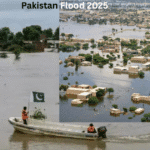
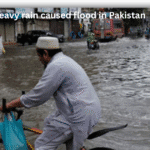



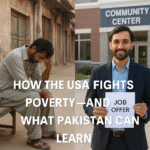
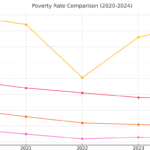

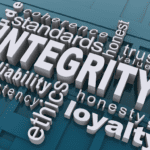
2 thoughts on “Integrity in America vs Pakistan: A Pakistani’s Eye-Opening Journey”